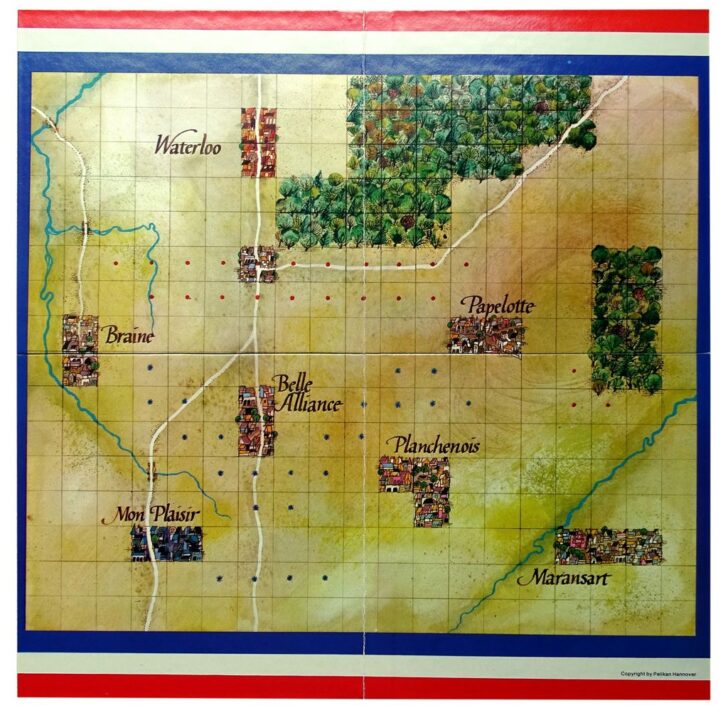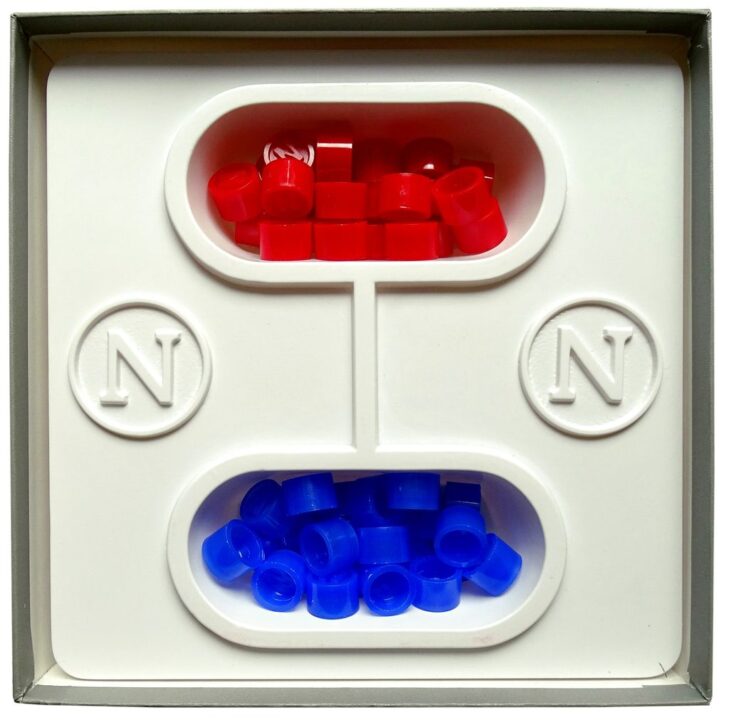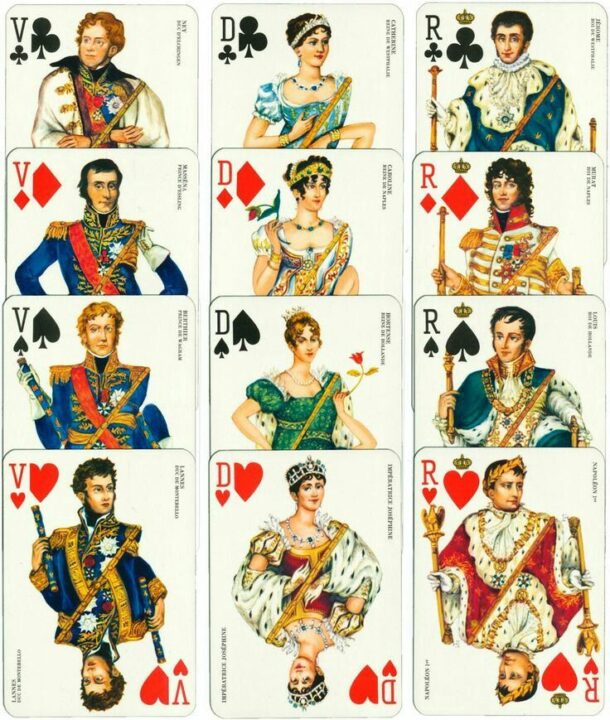Gather round, history nerds and strategy fans! Today, I’m sharing my thoughts on a game that’s been taking over our board game nights: Napoleon. This is a review based on actual play, full of snacks, laughter, and the occasional argument over the best way to cross the Alps (hint: not with dice luck). If you want a game with strong historical flavor, tough choices, and a good excuse to use your best French accent, keep reading to see if Napoleon will conquer your table—or retreat in defeat!
How It Plays
Setting Up
First, grab the map, all those tiny blocks, and your caffeine (trust me). Each player picks a side—Napoleon’s French or the Allies. You place armies and leaders in their starting spots on the map. Make sure you have your dice, cards, and any special markers within arm’s reach or else you’ll spend half the game crawling under the table.
Gameplay
Players take turns moving their units across the board, using roads and rivers to sneak up on each other or run away like a scared puppy (no shame, I’ve done it). Combat happens when armies meet—roll dice, check strength, and probably argue about the rules for ten minutes. You can try clever flanking, cut off supply lines, or just go full brute force. There’s a fair bit of bluffing, planning, and reading your buddy’s poker face—all while pretending you’re a military genius and not someone who just spilt chips on the board.
Winning the Game
The French win by either capturing Brussels or completely crushing the Allied armies. The Allies win if Napoleon gets stopped in his tracks or his army gets wiped out. The game ends when one side can’t recover, or the chips run out—whichever comes first.
Want to know more? Read our extensive strategy guide for Napoleon.
Marching in His Boots: Historical Accuracy and Theme in Napoleon
Let’s get one thing straight: most board games that slap a guy’s face on the box do not make you feel like you’re wearing his hat. But Napoleon tries. Oh boy, it tries. The first time I cracked open the map, I squinted, trying to find my own street in Brussels (I failed). There’s something magical about staring at a board that almost looks like a real map from Napoleon’s glove compartment. I half-expected to see coffee stains and Bonaparte’s angry scribbles about the Prussians.
The game hums with history. Units have those proper, old-timey names—Guard Cavalry, Young Guard, the works. And the fog of war? It’s there, waiting to mess with your head, just like in the real campaign. I found myself quoting dubious historical facts (“Did you know Napoleon was only 5 foot 2?”) while waiting for my turn. The mechanics try to honor the real tactics used in the Waterloo campaign. But don’t worry, you don’t need to wear a bicorne hat or yell in French to get in the mood. (Though it helps. Trust me.)
Now, about the theme—this isn’t just a cardboard history lesson. “Napoleon” wants you to think about supply routes and forced marches the way the big man himself did. I caught myself muttering, “Not another muddy road!” while my troops slogged across the board. Sure, it’s not perfect—some abstractions are a bit iffy—but it’s a lot more like a history lesson than most games where Napoleon appears just to sell more boxes.
So, you want guts, glory, and a crash course in muddy boots? You’ll get it here. Up next: let’s see if the game’s strategy has as many layers as Napoleon’s lasagna-like battle plans.

Strategy Depth and Player Choices: Outthinking Your Foes in Napoleon
I once played Napoleon with three friends on a rainy Sunday, after we realized that Monopoly causes more family feuds than a reality TV show. Our expectations were high—could this classic wargame with tiny soldier tokens and dramatic map lines deliver on real strategic depth? Spoiler alert: I didn’t flip the table, so that’s a good sign.
Napoleon throws you right into the thick of battle, with so many decisions that you’ll question your own general skills (and possibly your friendships). Each player has to decide not just where to move their troops, but also when to engage, when to retreat, and when to use special movement options. You’re juggling supply lines, road movement, river crossings, reinforcements, and the timing of major battles. The sense of pressure builds with every turn. You’ll try to outsmart, outflank, and sometimes outright guess your opponents. The French must press for quick victories, and the Allies have to slow the pace and pick the right spots for a stand. There’s a real tension between bold moves and cautious play.
In my group, everyone had different styles—Sam charged headfirst, while Alex played like a chess grandmaster, always a step ahead. Napoleon rewards both types, and there’s a surprising amount of freedom. Sometimes you think you’ve come up with a master plan, only to have the enemy slip past your line or sneak up on your rear guard. You never feel railroaded. Even after a dozen plays, folks still try new tricks. If you enjoy strategy over random luck, Napoleon is a solid pick.
But wait, don’t roll your dice just yet—the next part will see if the game’s luck-to-skill balance is more Waterloo or just plain waterlogged!

Luck vs Skill: Does Napoleon Let the Dice Rule?
We all know that one player who blames everything on luck. If you play Napoleon, I am sorry to say, that excuse won’t get you far. Sure, there is a bit of randomness, mostly around movement and events, but 90% of this game is about outthinking your opponent. My friend Max tried to march his French down the middle and trust the dice. Spoiler: his army ended up just as lost as my last attempt at assembling Ikea furniture.
The real meat in Napoleon comes from reading your rival’s mind. You’ll spend ages planning flanking maneuvers, bluffing with your reserves, or launching desperate charges that only your ancestors would be proud of. You can have all the luck in the world and still lose if you don’t plan ahead. I found myself sweating more than a penguin on a Florida beach as I tried (and usually failed) to outwit my friends.
There is a small dash of luck with cards and dice that keeps things spicy and ensures no two games feel the same. But these random elements never tip the balance so much that it feels unfair. In most games, the winner is the one who made the best decisions, not the one blessed by the dice gods. For me, this is the gold standard in historical games—not too random, but just enough to make the outcome uncertain.
Stick around, because up next, I’ll pick up the pieces and tell you whether Napoleon’s components and play time bring glory to your table… or make you want to march your board off a cliff.

Component Quality and Play Time in Napoleon: Worth the Investment?
When it comes to the board game Napoleon, the first thing that hit me—right after those rules knocked my brain around—was how solid the game feels on the table. If you’ve played games with paper-thin boards or pieces lighter than a feather, you’ll sigh with relief here. Napoleon’s map is thick and sturdy, perfect for withstanding the wild arm sweeps of a frustrated general. The blocks (yes, blocks, not boring old cardboard chits!) feel nice in your hand and make setting up a secret ambush weirdly satisfying.
The stickers for the blocks could be a sore point though. I spent a good half hour sticking tiny soldiers to tiny blocks and tried not to get glue in my hair. It’s not a deal breaker, but if you hate stickers, maybe assign a kid or an unsuspecting friend to the task. Also, the cards and player aids are decent enough—nothing fancy but they won’t fall apart from a couple evenings’ use.
Now, about play time. Napoleon is not a quick dash; it’s more of a campaign. My group clocked in around two and a half hours for a full game, and that was with a few debates over the rules and at least one snack break. If you’ve only got 45 minutes before dinner, save this one for later. That said, time flew by faster than Napoleon’s cavalry when everyone got into it. There’s a sense of story and tension that makes you want to see how it all ends.
Do I recommend Napoleon? Heck yes—if you like meaty games with good components and don’t mind investing your evening and maybe a bit of your sanity setting up blocks. Vive l’Empereur!
Conclusion
Well, that’s a wrap on our march through the muddy fields of Napoleon. I have to say, if you like deep strategy, historical flavor, and feeling a tad smarter than your friends when you pull off a surprise flank, this one’s worth a spot on your shelf. The sturdy pieces and long playtime mean it’s not for the faint of heart (or the short of snack supply), but serious gamers will love it. Strategic skill rules over luck here, and the game rewards planning more than random dice throws—just how I like it. The only downside, really, is you need friends who won’t suddenly remember they left the oven on after the second hour. If you’re ready to commit, Napoleon delivers a grand old time. Vive le board game!


